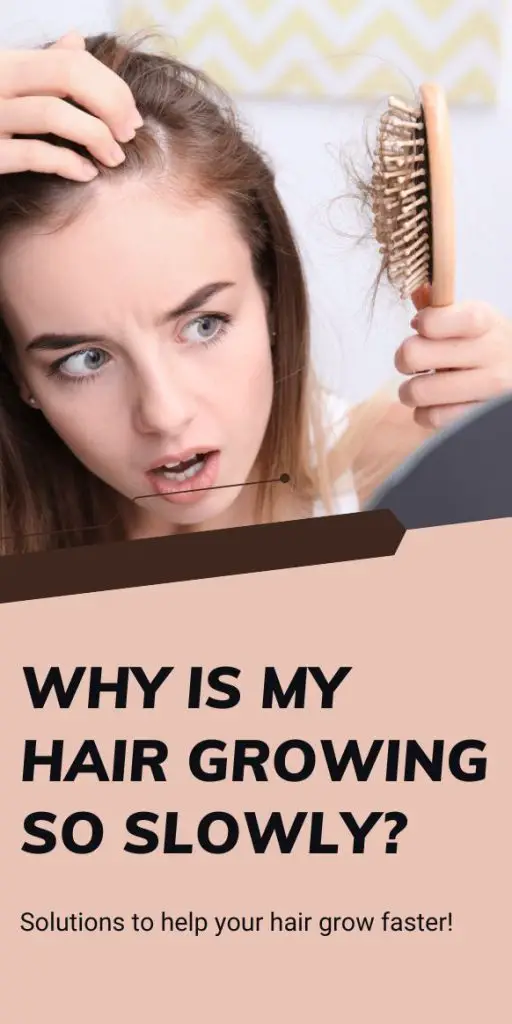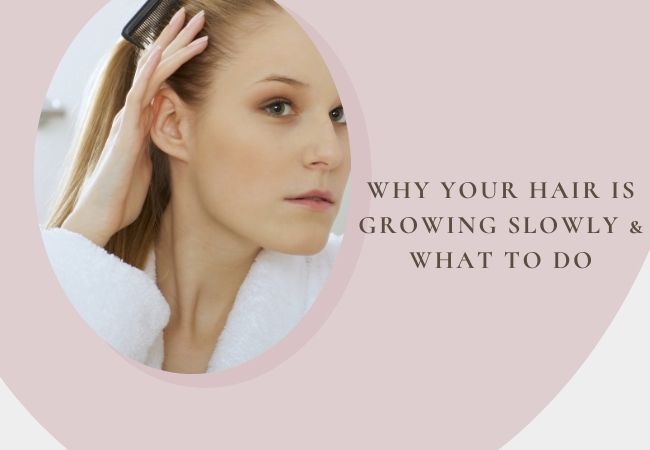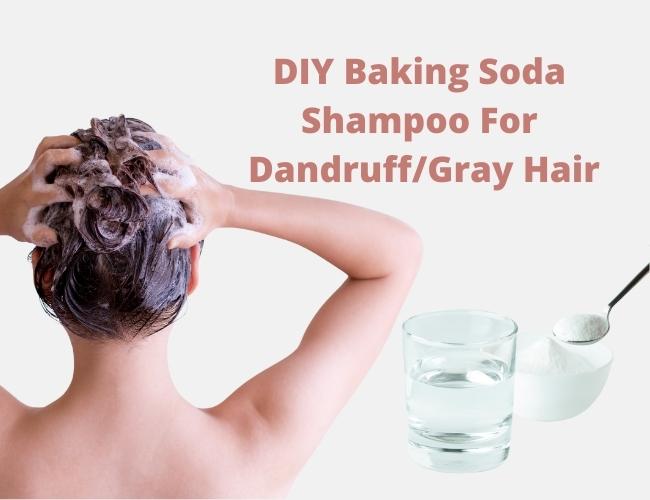Almost everyone has wondered why is my hair growing so slowly at some point in this life. The solution is not a quick fix and getting to the root of the problem is often the best place to begin.
Why is my hair growing so slowly?
Slow hair growth can be a concern for many individuals especially if you have never had this problem before.
In this post, I will talk about the hair growth process, the main causes of slow hair growth as well as some of the solutions.
The Hair Growth Cycle
The hairs on your head are at different stages of growth. There are three distinct phases of the hair growth cycle:
Anagen Phase: The Growth Phase
The anagen phase is the period during which hair actively grows. Its duration varies among individuals, influencing the ultimate length of their hair.
Genetics plays a pivotal role in determining the length of this phase, with some fortunate individuals experiencing more extended growth periods than others.
Catagen Phase: The Transitional Phase
Following the anagen phase, the catagen phase represents a transitional period. During this brief interlude, hair growth ceases, and the hair follicle undergoes preparations for the subsequent resting phase.
While it lasts only a few weeks, the significance of the catagen phase cannot be overlooked in understanding the holistic hair growth process.
Telogen Phase: The Resting Phase
The telogen phase is a dormant period during which the hair follicle rests before shedding the existing hair. This phase typically lasts for a few months.
Shedding of hair during this phase is a natural part of the cycle and is often a cause for concern only when excessive.
Factors Influencing Hair Growth
Genetic Factors
Genetics lays the foundation for our hair growth patterns. Examining familial trends can provide valuable insights into our predispositions, enabling us to manage expectations and tailor our hair care regimens accordingly.
While we cannot alter our genetic makeup, understanding it empowers us to make informed choices that align with our unique hair growth potential.
Nutritional Factors
The role of nutrition in hair health is profound. Essential vitamins and minerals, including biotin, iron, and zinc, contribute to the structural integrity of hair.
A balanced diet that incorporates nutrient-dense foods such as fish, nuts, leafy greens, and eggs ensures that our bodies receive the building blocks necessary for optimal hair growth.
Hormonal Influences
Hormones wield considerable influence over the hair growth cycle. Imbalances, often associated with conditions like polycystic ovary syndrome (PCOS) or thyroid disorders, can contribute to slow hair growth.
Strategic lifestyle adjustments and targeted medical interventions become imperative for restoring hormonal equilibrium and promoting robust hair growth.
Scalp Health
A healthy scalp serves as the foundation for flourishing hair. Common issues like dandruff, psoriasis, or an overly oily scalp can impede hair growth.
Maintaining good hygiene practices, using appropriate shampoos, and incorporating scalp massages stimulate blood circulation, creating an optimal environment for hair follicles.
Hair Care Practices
Hair care extends beyond mere aesthetics; it significantly influences growth. Excessive heat styling, chemical treatments, and the use of harsh products can damage hair, leading to slower growth.
Adopting a gentle hair care routine, choosing suitable products, and minimizing harsh styling practices are paramount for creating a conducive environment for hair growth.
Lifestyle Factors
Stress and Its Effects
Chronic stress disrupts the delicate balance of the hair growth cycle, leading to increased hair shedding and slower growth.
Incorporating stress management techniques, such as meditation, deep breathing exercises, or yoga, not only benefits mental well-being but also positively impacts hair health.
Sleep Patterns
Quality sleep is a cornerstone of overall health, and its impact on hair growth should not be underestimated.
During sleep, the body undergoes repair and regeneration, contributing to the vitality of hair. Establishing consistent sleep patterns and creating a conducive sleep environment is crucial for supporting optimal hair health.
Exercise and Circulation
Physical activity enhances blood circulation, ensuring that hair follicles receive an ample supply of nutrients.
Regular cardiovascular exercises promote overall well-being and contribute to improved circulation, supporting the health and growth of hair.
Common Myths About Hair Growth
Dispelling prevailing myths surrounding hair growth is essential for guiding individuals toward evidence-based practices:
Trimming Stimulates Growth
The notion that frequent trims stimulate hair growth is a common misconception. While trimming can prevent split ends and breakage, it does not directly influence the rate of hair growth.
Washing Frequency
Another myth concerns the impact of washing frequency on hair growth. Contrary to popular belief, frequent washing with a suitable shampoo does not hinder growth.
In fact, maintaining a clean and healthy scalp is vital for fostering optimal conditions for hair growth.
When to Seek Professional Help
While slow hair growth is often a benign concern, certain signs warrant professional evaluation:
Persistent Hair Loss
If hair loss persists or accelerates, it may indicate an underlying issue. Consulting with dermatologists or trichologists can help identify potential problems and guide appropriate interventions.
Abrupt Changes in Texture
Sudden changes in hair texture may signify an underlying issue. Professional examination and diagnostic tests can uncover the root cause and inform targeted interventions.
Interesting Posts:
Final Thoughts
If you are experiencing slow hair growth you will need to be patient as well as adopt a holistic approach.
Don’t feel discouraged, there are very many ways to address the problem. If you remain persistent you will get vibrant and flourishing locks that you love.
Getting optimal hair health is not just about the destination but the commitment to nurturing your hair along the way.
I hope this post on why is my hair growing so slowly was helpful. Follow me on @beautythings Pinterest for more awesome hair care tips.








